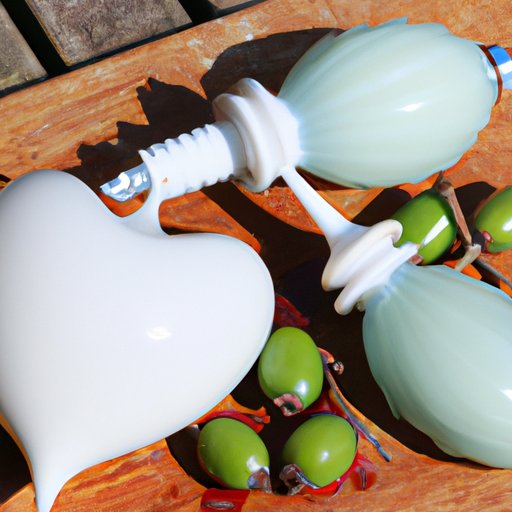
Introduction
A leaky heart valve, also known as valvular regurgitation, is a condition where the valve between two of the heart’s chambers doesn’t close tightly. As a result, some blood flows backward into the chamber it came from. This can cause a range of symptoms and may cause complications such as heart failure or arrhythmias. Surgery is one option for treating leaky heart valves, but it’s not the only one. In this article, we’ll explore natural remedies, lifestyle changes, medications, and non-surgical procedures for fixing leaky heart valves without surgery.
Natural Remedies
While natural remedies won’t cure a leaky heart valve, they may help improve heart valve function and reduce leakage. Some supplements and herbs that have been shown to potentially benefit heart health include garlic, hawthorn seed extract, and CoQ10. These natural remedies may be beneficial because they help improve blood pressure, lower inflammation, and reduce oxidative stress. The advantage of natural remedies is that they come with fewer side effects than some medications or surgery.
Lifestyle Changes
Lifestyle changes are also important in improving heart valve leakage and functioning. This can include regular exercise, quitting smoking, and eating a heart-healthy diet. By losing weight, keeping blood pressure in check, and reducing inflammation, lifestyle changes can help mitigate symptoms and help the heart function more efficiently. It is important to maintain a healthy weight and monitor blood pressure for overall heart health.
Medications
Some medications such as diuretics or ACE inhibitors can be used to treat heart valve issues without requiring surgery. These medications work to reduce fluid buildup in the lungs or body, strengthen the heart muscle, and ease the heart’s workload. In some cases, they may be able to prevent the progression of heart valve disease. It is important to take medications as prescribed by a doctor and to follow any instructions for monitoring side effects or adverse reactions.
Non-Surgical Procedures
Non-surgical procedures can also be used to treat leaky heart valves. One such procedure is transcatheter valve repair or replacement. This type of procedure involves inserting a catheter, or a thin tube, through a small incision in the groin and threading it up to the heart, where a small device is inserted to help the valve function properly. This procedure can be done while the heart is still beating and doesn’t involve open-heart surgery, which makes it less invasive and has a shorter recovery time.
Monitor and Regular Check-up
Regular monitoring and check-ups are important for anyone with a leaky heart valve. This can help identify problems early on and prevent the need for surgery. During check-ups, a cardiologist can monitor the heart’s function, track any changes, and recommend any necessary interventions. It is important to keep a log of symptoms, take medications as prescribed, and attend all regularly scheduled appointments.
Conclusion
Surgery is not the only option for treating leaky heart valves. Using natural remedies, lifestyle changes, medications, and non-surgical procedures can all be effective alternatives. By taking proactive steps in managing heart health, such as regular monitoring and check-ups, people can take charge of their heart health and improve overall heart function. Working together with a healthcare provider, there are many ways to treat leaky heart valves and improve overall well-being.




